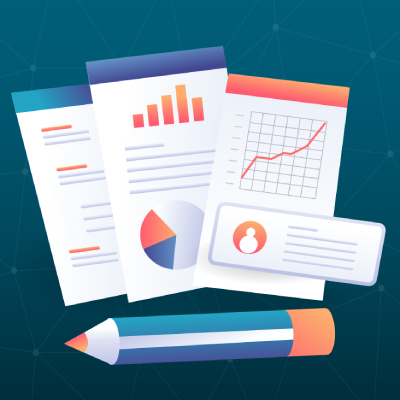Claim Your Discount Today!
Unlock a fantastic deal at www.economicshomeworkhelper.com! Enjoy an exclusive 10% discount on all Economics homework this Spring Semester with the code EHHrSPRING10. Our expert team is ready to support you, ensuring top-quality assistance at the best price. Don’t miss this limited-time opportunity to excel in your studies while saving money. Use the code at checkout and secure expert help for your Economics homework today!
We Accept
- How to Find the Right Topic
- Structuring a Research Paper Correctly
- The Abstract
- Introduction
- Methodology
- The Results
- Discussion
- The Conclusion
- Reference
- Things to Keep In Mind While Writing an Economics Paper
- 1. Be Concise
- 2. Use Active Voice
- 3. Connect the Facts
- 4. Make Paragraphs Short but Meaningful
- The Bottom Line
 To be honest, to write an economics paper, demands more than just a smattering of the basics. The paper's main goal is to achieve clarity, so it must be concise, technical, and well-researched. It also demands a lot of time and resources, so you can't simply do it a night before the deadline. This begs the question, "How can I excel in my economics research paper?"
To be honest, to write an economics paper, demands more than just a smattering of the basics. The paper's main goal is to achieve clarity, so it must be concise, technical, and well-researched. It also demands a lot of time and resources, so you can't simply do it a night before the deadline. This begs the question, "How can I excel in my economics research paper?" If you want to score excellent grades in your economics research paper without an idea of what to do next, this guide will equip you with everything you need today. It gives you proven tricks for writing your research paper from scratch. Without further ado, let's dive right in.
How to Find the Right Topic
Finding the right topic is the genesis of your paper-writing process. It's also the most important step that should go well, or you'll fall flat on your face. But we have your back. Use the following tips to make the process of finding a good topic for your paper fun, straightforward, and quick.
- Choose a topic that you love.
- Use the guidelines for finding a topic as outlined in the instructions of your assignment.
- Talk about research ideas with a classmate or friend.
- Refresh your knowledge on the subject matter by revising class notes and relevant materials.
- Make your topic manageable; not too ambiguous.
Structuring a Research Paper Correctly
Like any other academic piece, every economics research paper must follow a distinct structure. The structure makes it easy to read and understand your paper while allowing you to articulate and communicate your points precisely. We briefly explain each of the sections of an economics research paper below.
The Abstract
The abstract is usually short, about 200 words. Its main purpose is to summarize your research paper in one paragraph. While this sounds complicated, it's actually possible if you concentrate on important points only. For example, briefly explain your research's topic, highlight the research's aims, and write a few words to brief the reader about the methods, discussion, and results.

Introduction
Your introduction gives an impression of the logic of your argument, the overall quality of the paper, and the validity of your arguments. A reader (or examiner) can simply skim your paper's abstract and introduction sections and decide to continue reading the other sections of the paper or not. While crafting the introduction, you need to take care of three essential things:
The research question: - Tell readers why your question hasn't been answered yet. The purpose of your research paper: - What's the aim of your research? What do you want to achieve? Your position: - Why did you choose to write such a paper? What did you see?
The introduction must be brief, clear, and not beat around the bush. One thing to keep in mind is that your professor will certainly read this section. Therefore, give it your best to avoid doubts.
Methodology
Think of the methodology section as a stage that needs you to highlight the methods you have used in your research paper. For example, you may explain how you computed the values, the analysis methods used for your data, and the regression analysis used. All you need is to master and articulate the methods used. The length of this section depends on your professor's instructions and the number of methods used in your paper.
The Results
Your research paper will have some results based on your research data. This is the section where you present them using tolls like tables, graphs, plots, et cetera. Economics involves numbers, so you might be obliged to use computer software like R, SPSS, SAS, and others. If you don't know how to use them, you can seek help from professionals online.
Discussion
This is the section where you have the chance to discuss your results concisely and completely. An easy-to-understand explanation is needed here. The best practice for developing your discussion section is to connect it with your introduction. Doing this is meant to explain how your results have achieved your aims, responded to the research question, and validated your thesis statement.
The Conclusion
A better way to think about the conclusion is to view it as an improved introduction. To write it, paraphrase the introduction by demystifying how your research findings can apply in the real world. Also, you can think outside the box and propose further research.
Reference
This is the final section. Its main aim is to give the reader a full list of the resources you consulted while doing your research. The reference should be formatted according to your examiner's instructions. Many students usually have a problem with formatting. But there's no need to worry about it if you also sail in that boat as you can always get it done for you online by a professional.
Things to Keep In Mind While Writing an Economics Paper
1. Be Concise
Readers have better things to do than reading your research paper. One way of keeping them glued is writing short sentences that are straight to the point. Use more verbs than subjects to capture their attention and make them want to know more. Each sentence should be meaningful and intriguing. Remember this.
2. Use Active Voice
While passive voice is one of the components of formal writing, avoiding it is key to engaging your readers. It helps your readers understand each sentence faster as they won't struggle to find the doer of the action. Plus, readers tend to look for verbs while seeking to have their questions answered faster.
3. Connect the Facts
Each sentence needs to have the meaning as mentioned as mentioned in the first point above. At the same time, it should have a connection with the previous and next sentences. It would be best if you had this to make your writing flow smoothly. Consequently, readers won't stumble on incoherent ideas and points, which is a good thing.

4. Make Paragraphs Short but Meaningful
You now understand how to optimize your sentences for reader engagement. So, what about paragraphs? Well, a rule of the thumb is to ensure that each of your paragraphs should explain only one subtopic. You help readers concentrate on your ideas more effectively this way. Otherwise, stuffing paragraphs with several points will only cause confusion.
The Bottom Line
If you want to excel in our economics research paper, follow the writing tips and formatting guidelines given above for surefire success. We've covered all the significant parts of an economics research paper. Our final advice is that you implement each of the points above at a time to avoid confusion. Meanwhile, we wish you the best of luck in your economics career.








